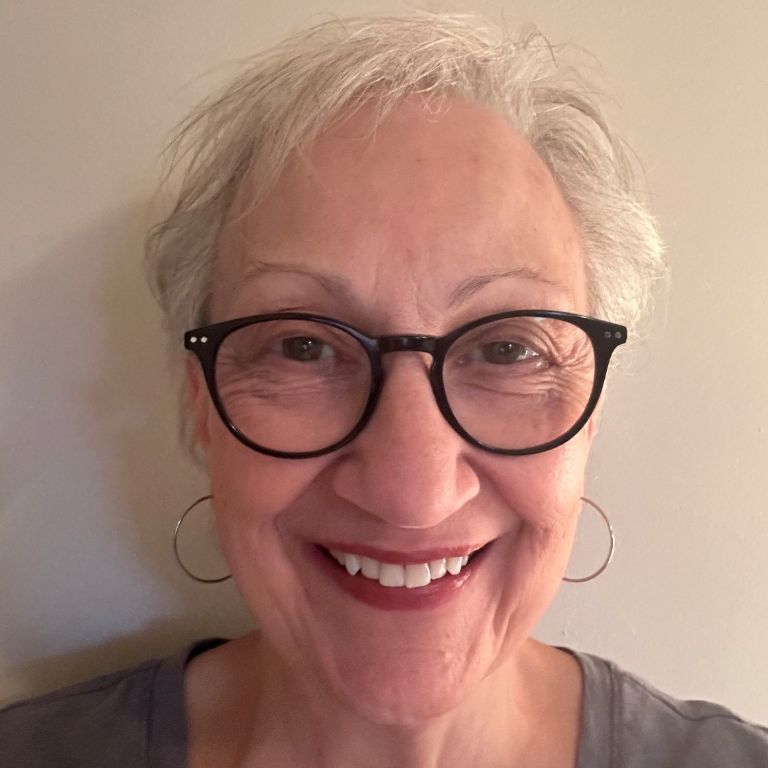What I Wish I Knew: Nothing really prepares you for breast cancer
- 03/18/20
Breast cancer is one of the most commonly diagnosed cancers in American women. A diagnosis can leave you feeling unprepared for health and treatment decisions you have to make. It can also put unexpected stress on your everyday life, your family, and your job.
At LBBC, we know one of the best ways to learn about living with breast cancer is by hearing from others who have been there. This blog is part of a series called What I Wish I Knew, which features people diagnosed with early-stage breast cancer in the past who want to share their knowledge with those who are newly diagnosed. What I Wish I Knew will update once a month.
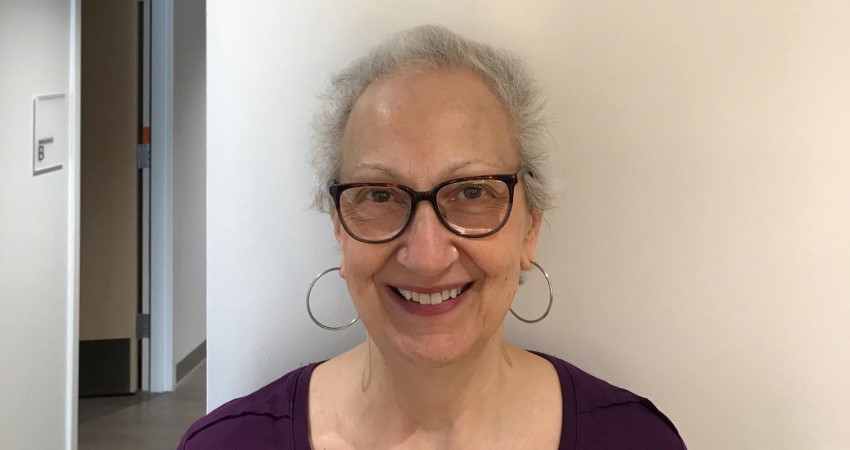
Uncertainty, confusion, anxiety, concern, fear. These words describe the disquieting, unusual times we are living in. It also describes my life when it changed 1 year ago this month when I was diagnosed with stage II, HER2-positive breast cancer. It still doesn’t seem real to me even though it’s a year later. And what a year it was.
Looking back, I knew nothing. No one in my family ever had breast cancer. I only ever had one friend with breast cancer and, incredibly, she never complained to me. I didn’t know what hit me when I was diagnosed. I knew nothing about breast cancer and was totally unprepared.
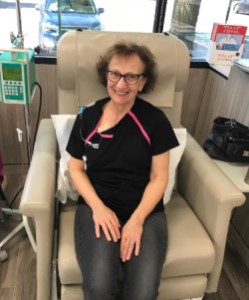 I was unprepared for the diagnosis (my mammograms had been normal my whole life).
I was unprepared for the diagnosis (my mammograms had been normal my whole life).
I was unprepared for the surgery (I needed a lumpectomy as soon as possible).
I was unprepared for the treatment that was prescribed. (Chemo? No, please not chemo! Yes, I needed chemo.)
I was unprepared for the side effects (exhaustion, insomnia, bone pain, nail issues, pimples!).
I was unprepared for the roller coaster of emotions (anger, fear, confusion, severe shock, grief).
I was unprepared for the lack of help out there in coping with all these strong emotions.
I was unprepared for how it affected family (also anger, fear, confusion, severe shock, grief).
I was unprepared for the insensitive things people say. (People: “Claire, you’re strong. You can do this.” Me: No, I’m weak. And, I have to do this.)
I was unprepared for how strongly I had to advocate for myself medically.
I was unprepared for the blasé and often uncaring attitude of the medical world.
I was unprepared for the different types of treatment I had to endure.
I was unprepared for the number of medications I had to take.
I was unprepared for the price of some of those medications (thank goodness for Medicare).
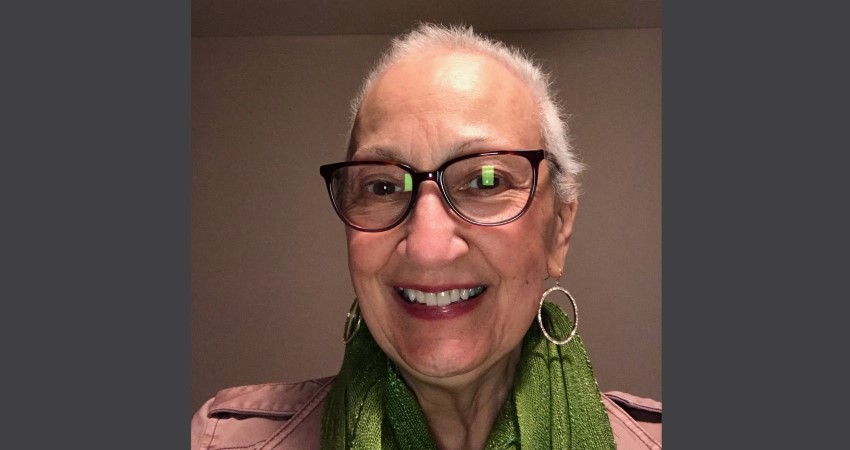
I don’t want to be so presumptuous that I would tell anyone how to prepare — everyone is so different and what smooths the way for one person may not turn out so great for another. The best way to say it is “prepare to be unprepared.” There is so much to digest from the day you’re diagnosed to the day you’re done with treatment and beyond, that telling yourself it will be overwhelming may help.
To do my small part, I devised this acronym: PREPPS.
Prepare first by acknowledging that this may be the hardest thing you’ll ever experience. You’ll never be able to prepare 100 percent, but expect the worst and hope for the best.
Research without driving yourself too crazy. It’s good to be aware of the basics but over-researching can make you depressed and confused. Try to balance it.
Emotions may be strong and some days you may feel out of control. For me it was extreme anger, sadness, fear, and depression. I’m still struggling with these emotions a year later (I did find a couple good support groups and a terrific hotline).
Pace yourself. This means you will need to slow down. I am not happy unless I have many projects ahead of me each day. Cancer took that away from me. The best advice someone gave me was, when you are tired but can’t stand being in bed anymore, just do one thing. If you can do one thing a day you will have accomplished a lot. Some examples would be: 5 minutes tending to your garden or 10 minutes going for a walk. Keep it small and simple.
Personality. Socrates said, “Know thyself.” Are you the type who speaks up when things don’t seem right? Or do you need to take things in, contemplate, and then question? I’m kind of both. So when one of the many doctors I saw during treatment said something that didn’t seem clear or if they spoke to me in a condescending manner, I made sure I told them. Or, after I got home and realized I forgot something or didn’t write it down precisely, I called the office and asked to have it explained again. So, don’t hesitate to utilize your best form of communication.
Support: Ask for it and accept it. My husband and occasionally my daughter came with me to doctors’ appointments, and it’s a good thing because I was so distraught that sometimes I couldn’t remember a word the doctor said. If you have a trusted friend or relative, ask them to accompany you. I also had friends who offered food and presents. I accepted. My kids did whatever I asked of them. And I asked a lot. My sister and brother visited me and brought me the best organic food ever. I’ll forever be grateful to them. The same sister and brother ALWAYS answered the phone when I called in the middle of a meltdown. They ALWAYS said the right thing. But there will be plenty of people who say the wrong thing. Don’t spend any time with those people. Try to find support groups, hotlines, counselors, and other professionals who make you feel better. Ask if your cancer center offers resources or try national organizations like Living Beyond Breast Cancer and Cancer Support Community.
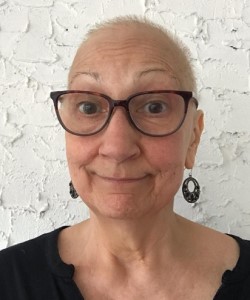 I won’t lie; I never thought I’d make a comeback but I am slowly getting back to my hobbies, my volunteer activities, going to the movies again, and out to eat (sadly that is all now on hold until the self-isolation is over). My hair is growing back. (It’s totally grey but, c’mon, I’m 66 years old! What did I expect?) My eyebrows are all the way back (my eyelashes not so much). Inch by inch my energy is returning (even though I still can get extremely tired and need my afternoon “lie-down”). I continue getting the emotional help I need. I still forcefully advocate for myself and am as vocal as possible without being obnoxious because the medical world needs to hear my voice.
I won’t lie; I never thought I’d make a comeback but I am slowly getting back to my hobbies, my volunteer activities, going to the movies again, and out to eat (sadly that is all now on hold until the self-isolation is over). My hair is growing back. (It’s totally grey but, c’mon, I’m 66 years old! What did I expect?) My eyebrows are all the way back (my eyelashes not so much). Inch by inch my energy is returning (even though I still can get extremely tired and need my afternoon “lie-down”). I continue getting the emotional help I need. I still forcefully advocate for myself and am as vocal as possible without being obnoxious because the medical world needs to hear my voice.
While I felt hopeless this past year, my final bit of advice is actually quite hopeful. I never thought I’d be writing about how I’m seeing the light at the end of a long tunnel, but here I am. And if I can do it, you can too.
Claire Gawinowicz, 66 years old, is retired and lives in Oreland, Pennsylvania, with her husband of 37 years. She has two young adult children who live and work in Philadelphia and bring her more joy than she thinks she deserves. She was diagnosed with stage II, HER2-positive breast cancer in March of 2019 and is still undergoing treatment.
If you are recently diagnosed and would like to learn more, be sure to check out our Guide for the Newly Diagnosed. If you want to participate in the What I Wish I Knew series, you can share your story with Living Beyond Breast Cancer.
What I wish I knew is sponsored by


